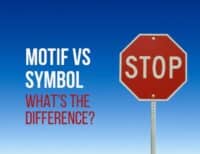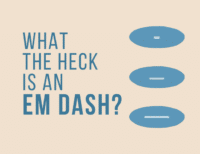On Saturday, I went out to dinner with some friends as an early birthday celebration. We all ate our fill, and when the server came by to ask us how we felt about dessert, all of us laughed because we were so full. Sweet treats to follow? Please.
Speaking of desserts, I’m sure we all know the difference between a desert and a dessert, right? Just in case, let’s review.
A desert is a sandy/rocky/generally hot and dry climate. A dessert is a sugary confection that you’re supposed to eat after dinner (although there are some who argue that life is too short to eat dessert last).
But There's One More Type of Desert
But did you know that there is another desert? And it’s pronounced like dessert? I actually had no idea until maybe about a week ago. I subscribe to Grammar Girl’s newsletter, and recently she wrote a blurb about getting your just deserts.
Yes. Deserts. Spelled like the arid home of the cactus. Pronounced like chocolate cake. My brain exploded.
All this time, I’ve been writing about people getting their just desserts, which makes it more understandable that people misspell desert/dessert. So to review:
- Desert is used when you’re talking about Death Valley/the Sahara/the Negev,
- Dessert is used when you’re deciding between coconut cream pie and peach cobbler,
- And all of the above is thrown out the window when you use the phrase “just deserts”, because it’s spelled like the first, and pronounced like the latter.
Are there any other word usage discoveries that have blown your mind when you found out the truth?
PRACTICE
Write for fifteen minutes about a holiday Scrooge/Grinch/holiday cultural reference of your choice getting their just deserts. Add sweets or arid climates as the mood strikes, but no requirement here. Post your practice in the comments, and don't forget to peruse the work of your fellow writers.








Usage of the word “just” blows my mind (“We’re just getting desserts” versus “We’re getting our just deserts”).
Good point!
This is what angers me about Christmas. For the entire month of December, those of us who choose to live an alternative lifestyle of frugality are frequently referred to as “Grinch” or “Scrooge.”
“You’ll get your just desert,” I hear my third cousin thrice removed mutter as she opens her Christmas letter from me during the EstradaPhillipsBillingslySmithOrtega family gift exchange.
Let me tell you something. These pillars of American literature are clearly misunderstood. They wander in a desert of Christmas spirit, pleading with their fellow humans to turn it down a notch. This Christmas thing, why, it’s overrated, underfunded, and perpetually in debt. It is a celebration of lavish living, garnered with turkey, ham, and a dessert tray that could launch an entire kindergarten class into stage nine hyperactivity.
Old Ebeneezer and the Grinch, they understood moderation. To hit the highest of highs every 25th of December could only mean that the lowest of lows was forthcoming. After the lush jungle of joy that surrounds holiday season, there must come a desert of anti-joy. The season of giving and charity can only be tempered by one of theft and selfishness. This is the natural way of things.
But it doesn’t have to be so. Both these heroes of economics know that the status quo is always preferred to a roller coaster of human emotion. The Grinch knew that we were simply not meant to be so darn happy. Just desert? Imagine how the Whos normally felt on December 26th. They’d fall quickly from their euphoria. They’d suddenly stop their ting-tingling. End their ring-dingling. And every Who down in Whoville, the tall and the small, would suddenly be overcome with an urge to slit their Who-wrists. They’d wander the desert of Who-sorrow, overcome with the notion that there would be no more joy, no more noise, and no more Who desserts served in little Who-cups for an entire year.
The Grinch, you see, stood atop Mount Krumpet every December, showing great concern from his smallish neighbors. For he was the one who would witness the sorrow of post-Christmas depression.
Scrooge, likewise, also witnessed the aftermath of Christmas in Old London. He, a businessman of businessmen, clearly understood the ramifications of a one day spending spree and inflated personal debt. No just desert was justified for this giant of industry. He knew the sweetest dessert was one that could be savored throughout the year, no day more important than the other. Had his fellow Londoners followed his lead, they would have quickly emerged from the economic desert in which they found themselves entrenched.
Just desert? I think not. In fact, we should all shed a tear when, at the end of their stories, we find that they have been brainwashed into taking part in this annual orgy of spending and gluttony.
No, we should not celebrate their retribution. We should pity them, for the hope they offered was singed in the desert of wanton celebration. Weep for them, if you can. For the sweet dessert they offered was of a year of mediocrity, one filled with low expectations and, therefore, no disappointments. We’ve squandered our chance. Now we have Black Friday.
And THAT is our just desert.
I like the point you’re making. Our consumer society is supposed to be based on ‘deferred enjoyment’, that is working and saving towards something that will be enjoyed later. Unfortunately we want to ‘enjoy’ all the time.
mind. blown.
Don’t forget about the other meaning of DESERT (to abandon, as in “he would never desert her”), which is pronounced like DESSERT. 🙂
These words have identity disorders.
Here’s an easy way to remember the right spelling – when you get your just deserts, you’re getting just what you deserve. And “deserve” has only one S.
In my piece I try to conjure up three meanings of desert.
The eight-day hike across the mountain range in the desert turned out to be something completely new. An avid backpacker, for the past two years he’d logged every hike in his journal. This one would have been just another badge he’d add to his growing collection when he arrived back at base camp.
On the second day he realised why hermits and anchorites fled to places like this – to discover themselves.
He’d never been so aware of himself as he was now. Granted, an overall brooding presence suffused every rock and peak on this harsh stony plateau, but it was concentrated on him, making him sensitive to his own presence.
This was a nature reserve, he reminded himself. The way the deer looked at him when he approached, and then slowly ambled away, reminded him he was an intruder in their world.
On the sixth night he felt the presence of two people who had inhabited the area hundreds of years ago. Asleep, he yet sensed the short men dressed in animal skins looking down at him in his bed in the hollowed-out sand.
How were the others in his party of six experiencing this venture into another world? Surely they felt the same things he did. Were they ascribing it to bad dreams? Or the heat?
Each one kept his thoughts to himself.
Like him, would they later reflect over the eight days and draw some meaning out of the experience?
He’d read somewhere that the original inhabitants of this part of the world saw life as being part of the Creator’s dream, something without which they’d have no existence.
A few years later a good friend was killed on this same hiking trail.
His initial reaction was sorrow at the loss. Later it changed to acceptance. He felt some closure, as if he’d finally reached the end of his desert awakening. Things had balanced themselves out and restored equilibrium in the dreamland.
This way’s easier-
DESSERTS, when spelled backwards, makes STRESSED.